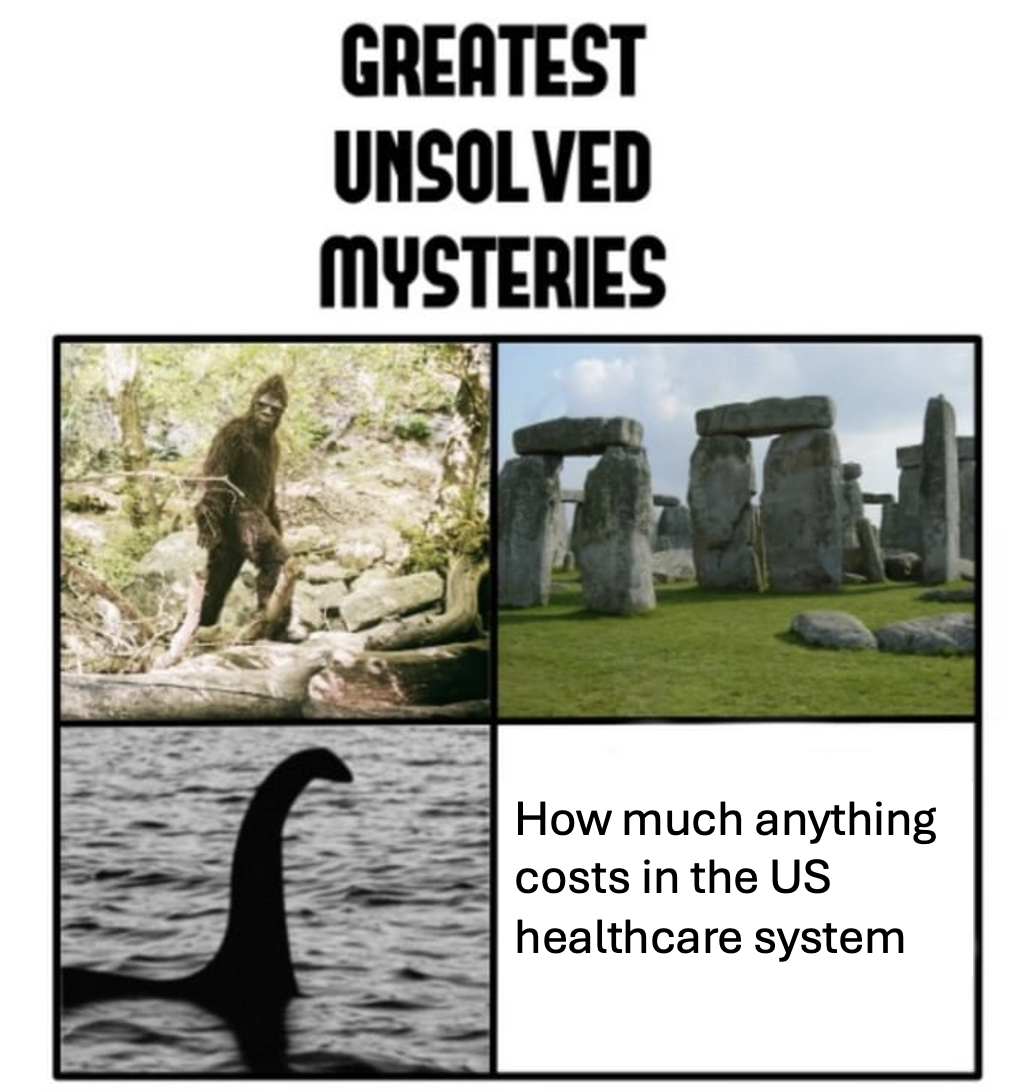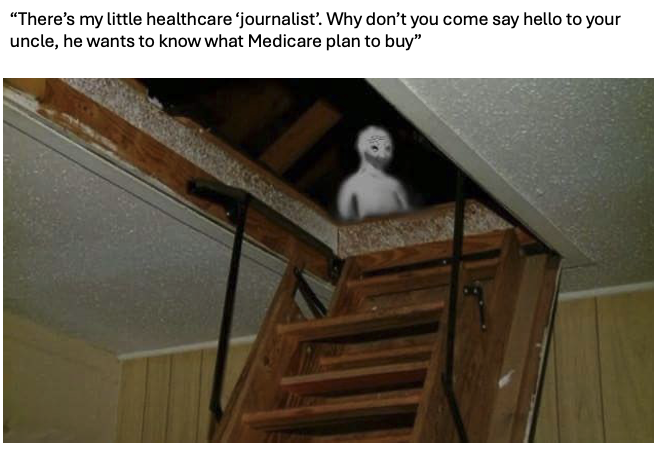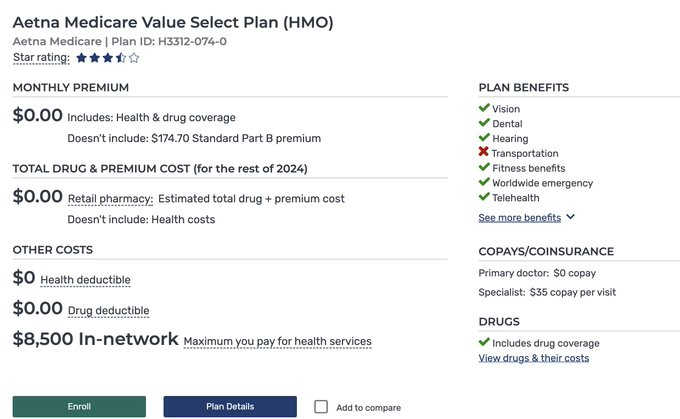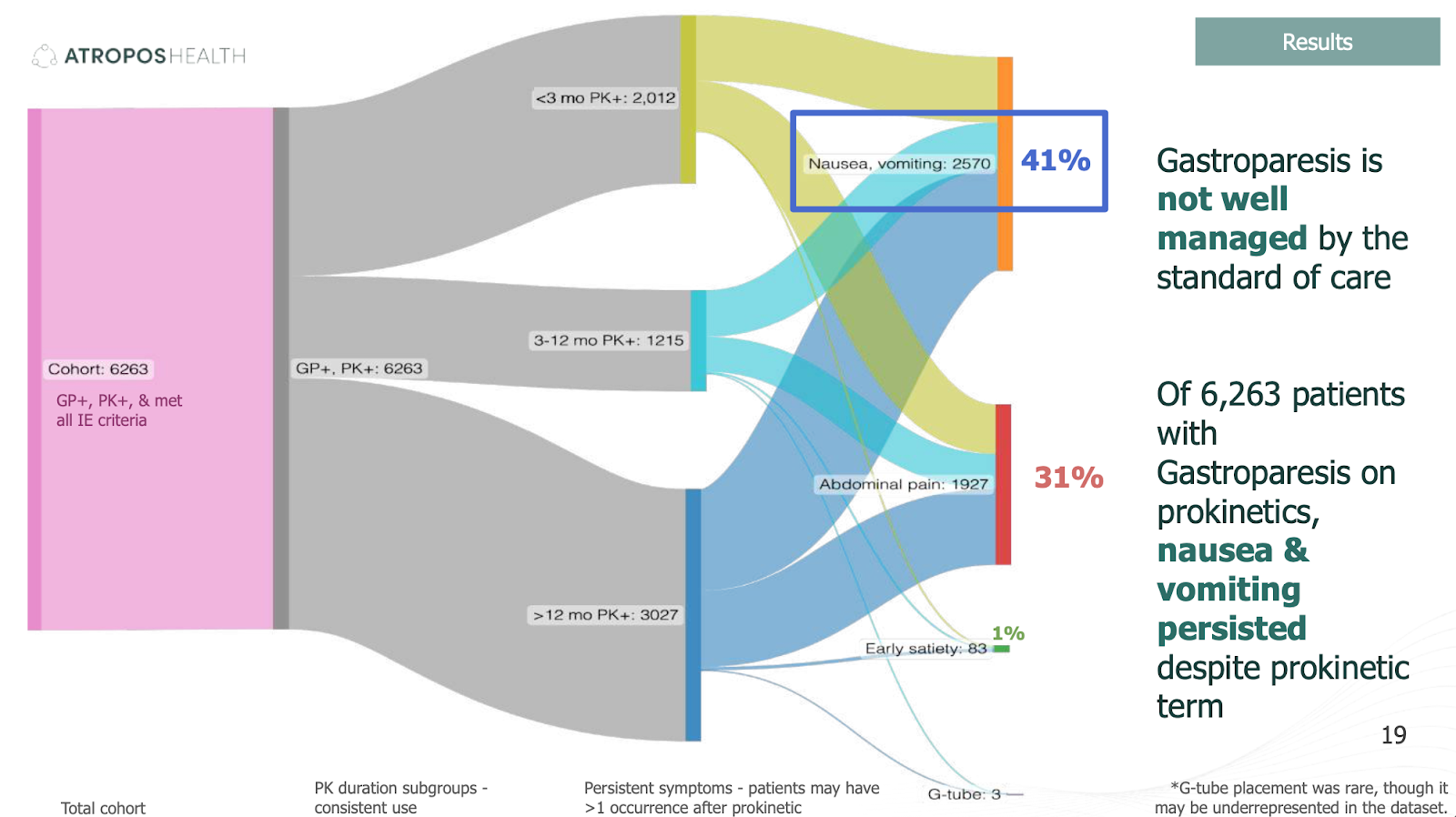Can patients be good healthcare shoppers?
Get Out-Of-Pocket in your email
Looking to hire the best talent in healthcare? Check out the OOP Talent Collective - where vetted candidates are looking for their next gig. Learn more here or check it out yourself.
 Hire from the Out-Of-Pocket talent collective
Hire from the Out-Of-Pocket talent collectiveHealthcare 101 Crash Course
%2520(1).gif)
Featured Jobs
Finance Associate - Spark Advisors
- Spark Advisors helps seniors enroll in Medicare and understand their benefits by monitoring coverage, figuring out the right benefits, and deal with insurance issues. They're hiring a finance associate.
- firsthand is building technology and services to dramatically change the lives of those with serious mental illness who have fallen through the gaps in the safety net. They are hiring a data engineer to build first of its kind infrastructure to empower their peer-led care team.
- J2 Health brings together best in class data and purpose built software to enable healthcare organizations to optimize provider network performance. They're hiring a data scientist.
Looking for a job in health tech? Check out the other awesome healthcare jobs on the job board + give your preferences to get alerted to new postings.
New Discussion Post
Today I have a new post and discussion topic. To reiterate the rules:
I’ll pose a question and give my thoughts. In a future newsletter, I’ll include ~3 of my favorite replies. I’ll possibly even make a meme related to your answer.
Good answers are ones with a novel viewpoint, data to back up their claim, personal stories, and avoid clearly shilling something.
Please reply with your thoughts and let me know if you want to have your name included or be anonymous. You have to be on the newsletter to submit a reply to it, obviously.
Try to keep answers to two paragraphs or less please. This obviously doesn’t apply to me because it’s my newsletter and these are house rules.
tHe ConSuMeRiZaTioN oF HeaLtHCare
Everyone talks about wanting to make healthcare more consumerized and shoppable. But what if…patients are terrible shoppers?
For as long as I’ve been writing about healthcare, people have been talking about how healthcare is getting consumerized. I myself have been known to start an old research piece or two with “ooo we’re moving to high deductible plans to make patients shoppers”. A healthcare analyst going through their canon event.
I think most people would agree that today healthcare is still not shoppable. There are some practical roadblocks here like the fact that no one knows the prices and patients can’t move their data easily.

But even assuming that information was perfect around pricing and all of the patients' data was in their hands, my ideological question today is…do you think patients can be good shoppers in healthcare? Is the ideal scenario a totally consumer marketplace?
Someone recently said to me that if healthcare was totally consumer-driven, there would be no incentives to develop drugs in areas like rare diseases or cancers because no one THINKS they’re going to get those issues. But they’re grateful for those drugs if they unexpectedly get it. That made me think a bit.
Plus this question has been top of mind recently because of 3 healthcare experiences I had recently. I think these are good litmus tests for whether you think consumer driven healthcare is good or not.
Finding a dentist
The first is that I moved to a new neighborhood and have been on the hunt for a new dentist. We’ve talked about how dental insurance works in the past - benefits are essentially checked in real-time for insurance and patients have pretty large out-of-pocket exposure (which sounds like I’m talking about a flasher when I write it out like that). IMO as a result, dental is actually a pretty good example of consumer shopping in healthcare where there’s a third-party payer.
In order to find my dentist, my experience is pretty similar to when I shop for other things. I check google map reviews, I ask friends which dentist they use, and I hit up college friends that are dentists before remembering that I’ve seen them shotgun a beer the day before finals.
The result is that you have a dental system which does compete on cost/experience and is transparent in how much you’re going to pay. The downside of a totally consumer driven healthcare system is that the dentists constantly try to upsell you on things that are cosmetic and probably not medically necessary. The shadier dentists will even say you have cavities or dental issues which need operating even when it’s probably not true. It’s hard for consumers to know if what the dentist is saying is true or not, but they all could get a second opinion too.
The office I picked is so old the patient intake form is a Microsoft Word doc that asks if I’ve taken diet pills that were discontinued in the 90s. But it’s cheap and the doc there is a straight shooter who never really tries to upsell or do anything shady. I shopped around and made a decision based on what was valuable to me.

I’m sure many of you see the dentist regularly. Do you think the dental experience is better than the current healthcare experience?
Picking a Medicare Advantage Plan
My parents are at the age where lots of their friends are turning 65 and are trying to decide what to do about Medicare. The unfortunate thing about being the “healthcare guy” is that my phone number is a giveaway prize at gatherings for uncles and aunties to ask me which insurance to pick.

I’ve been helping a few Medicare eligible folks (including via Twitter DMs) with the process of enrolling in Medicare. This feels like a good example of consumer shopping in healthcare - you have a whole variety of options to pick from and have to figure out the different components that are right for you. For each plan you need to consider:
- Which doctors are in-network and which drugs are covered? It could be for a disease today, or you might want something you’re at-risk for in the future (e.g. cancer).
- What does your out-of-pocket spend look like? That’s premiums you pay per month, co-insurance, copays, etc. It’s a combination of your financial situation and estimate of how much healthcare you’re going to consume.
- Are there supplemental benefits you care about? Some plans cover portions of dental, vision, exercise, utilities, and even certain home remodeling services.

There’s a lot more, but those are just examples. And what you see in the real world is a lot of similar facets of a consumer shopping experience.
- Marketplaces that help you compare plans.
- A Medicare run Star Rating system that is a composite of things that make a plan high quality.
- Brokers that offer to help guide you to find a plan but have their own financial incentives from the insurers.
- A lot of aggressive Medicare marketing campaigns during the enrollment time.
A few things I’ve now learned helping various people shop for their health insurance plan.
It is EXTREMELY overwhelming when you have this many options. The average Medicare Advantage beneficiary has access to 43 different plans, and that doesn’t even include trying to figure out if you should just be on traditional Medicare or stay on your employer’s insurance if you still have that option.
People who’re sick tend to care more about the coverage of doctors/drugs. People that have heard stories from friends who are in restrictive networks want to avoid them if they can. People who weren’t sick tended to focus on the cost of premiums and the supplemental benefits.
Unsurprisingly most of the Medicare Advantage plans focused on advertising those two things and less so on the network and coverage. With rent and groceries skyrocketing, obviously subsidies look attractive. Plus you know who cares about your network coverage and which doctor to see? People that probably have an illness, which can be very expensive for the insurance company.

Advertising plays a huge role here. Brokers for example advertise these Medicare “hotlines” that seem to be helping guide patients to make a choice, but the phone number advertised connects to their own broker line. These brokers can make different amounts of commission and margin depending on which plan you sign up for, but unless you ask they usually don’t tell you.
Few people I’ve talked to understood that they could get a Medicare Supplement plan at all and then got confused because there’s a million variations. Medicare Supplement policy will cover you very well but the out-of-pocket costs are much higher upfront. So it’s pretty limited to people that are well off enough financially.
Ask a 65+ year old if they understand their Medicare plan. Genuinely curious what they thought about the process of choosing.
Quick intermission - current courses
These posts are so long they need intermissions now. Like a broadway show, but sad.
Here are the healthcare crash courses now enrolling:
- EHR data 101 - You pay your engineers too much to have them waste time on learning the basics of how to deal with electronic health records. Let us do it for you, class starts this Tuesday 8/13.
- How to Sell to Health Systems - If you need to sell to hospitals, you need to throw down at the right conferences and nail the pitch. That’s the honest answer. We’ll tell you how to do it, starting 9/9.
- US Healthcare 101 - None of it makes sense, but I’ll teach you what you don’t even know. Don’t know what an ICD-10 code is? Or the FDA? You’re screwed, jk, but I’ll save you starting 10/1.
- Healthcare Call Center 101 - Your call center function is a key part of running a healthcare company, and there are a lot of important decisions with different tradeoffs to consider. Now it’s recorded and on-demand!

Compounding Pharmacies and GLP-1s
At this point you’ve probably heard of Ozempic. If not, you must be Amish and get this newsletter printed for you.
Ozempic, the diabetes and obesity drug we’ve talked about previously, is a GLP-1 agonist and has been in a shortage for a couple of years now. Thanks to the shortage, you see a lot of “knock off” versions of GLP-1 drugs. These are usually made by compounding pharmacies, which are loosely regulated pharmacies that can make custom formulations of medicines. This includes combining the active ingredient of Ozempic with other things (meth?) to create custom formulations.

On top of that, many people’s insurance still doesn't cover the drug. This means that a significant number of people are paying cash to get these GLP-1s.
The result is that there’s a ton of companies trying to pitch to consumers to get them to buy their version of GLP-1s. Everyone from hims to Ro to a variety of med spas are all selling the drug, maybe some wrap-around services to help with side effects of the drug, or other products like supplements/vitamins. And expectedly, there’s quite a bit of sketchiness from the sellers and compounders which might add ingredients or mess up the dosages which can be a risk to patient safety.
Some companies compete on price, others are competing on experience (Get the drug fast! Right to your door!), and hims is even buying its own compounding pharmacy to ensure quality control. You can also look up reviews on a lot of these companies on various sites (reddit, Google, etc.).
Do you think a consumer can be a good shopper in this scenario?

Some thoughts on consumerization
I think patients can be more successful shoppers when they understand the product they’re buying is a commodity. For example, buying a packaged drug is easier because it’s the same drug across pharmacies and the patient knows that. Shopping for a surgery is much harder. Then there’s this middle ground where something is pretty close to a commodity but patients may not be totally sure if it is (e.g. getting an MRI done). All of this becomes amplified if patients don’t know the decision is time sensitive or not.
Trying to sell products that have multiple factors that need to be assessed simultaneously is insanely confusing. An insurance plan has like 10+ components that you need to think through, and currently require the patient to try and remember their health history or guess their future need for healthcare services. This is virtually impossible, and the person selling you (broker/carrier) will always have more information than you.
It’s also highly personal - when I’m guiding people through this it only works if they tell me their health history, personal financial situation, etc. Don’t give that to a stranger on the internet! Even if they’ve got a smile and cheekbones like me!
In fact I think this is one of the reasons marketing plays such a strong role in healthcare - patients are generally not sure how to evaluate if what they’re getting is “good”, so the marketing focuses on one or two aspects they know patients will like.

Patients tend to respond much more strongly to short term issues that are real and present vs. trying to guess probabilistically what might happen in the future. It’s pretty easy to attract people if you offer food subsidies if they need that, only to sell them a plan with shitty coverage.
If a patient has a pool of money and they don’t have to use it on healthcare, they’ll probably spend it on things that provide more immediate utility. What sounds more appealing, spending $20 on a movie or getting a tube shoved up your butt to look for polyps? Looking at studies of patients on high deductible health plans provides a bit of a peak into this. Patients can either spend their cash on useful healthcare services underneath their deductible or things in their everyday lives. Turns out those patients consume less bad healthcare (e.g. unnecessary emergency department visits) but also consume less good healthcare like cancer screenings.
Relatedly, if a patient can’t afford something but they really want it then they will flock to the cheapest option even if it’s dangerous. We see this with cosmetic surgeries and horror stories of getting them done abroad and we see this with shady compounding pharmacies for GLP-1 drugs.
Some idle thoughts on how we might improve the patient shopping experience if we want to go this route:
- Access to data is really key here for shopping. I’m excited about more price transparency that’s slowly happening and more ways for patients to get access to their health record data. There’s a world in which patients are able to give their own data to an AI or some form of trusted guide to help the patient make more informed decisions and explain the options + their tradeoffs. The AI also could be unbiased in their guidance in a way that humans like brokers are not.
- It would be very helpful if patients had a map of “how many patients like me went down this route” and in an ideal world what their outcomes were. There are provider facing versions of this like Atropos, but not really patient facing ones. Patients right now can’t make an informed risk/reward decision because no one tells them what the risk of any decision currently is. I do think we should allow patients to take on more risk in their decisions for lower cost options, but most patients aren’t informed of the risks properly. And there’s an ideological question of whether you think patients are good at assessing risk even if they are informed of it.

- IMO if we go down this route, the government should be in charge of setting a minimum quality threshold for healthcare services to prevent outlier bad actors. Secret shopping at dental offices to see which ones lie about cavities. Audits of compounding pharmacies. Then maybe they put a big public grade, the way that food inspectors put a “C” in big letters in front of a dirty restaurant. You can still choose to go there, but you’re doing the “gas food/food poisoning” analysis mentally. Or you give those places big fines so that they self-regulate better. In fact the government does this in certain areas, like having secret shoppers test the customer service lines at Medicare Advantage plans which factors into their Star Ratings (Elevance might have just lost $190M from one of these).
- Simultaneously, we should probably have more deregulation of things that represent a lower risk profile. We recently made certain types of hearing aids over the counter instead of needing a prescription. You can still get a prescription one that’s more expensive with more bells and whistles, customization, clinical support, etc. But now there’s a cheaper, less gate kept version for people with milder hearing impairments. There’s probably more goods and services in healthcare that could be accessed directly by patients with relatively little harm.
- Health Savings Accounts (HSA) can be an interesting wedge here where people allocate money that has to be spent on shopping for healthcare services. Right now very few people actually contribute to it when it’s optional. That’s why countries like Singapore which have an HSA-like system (called Medisave) make it mandatory to contribute a portion of your income to it and then shop around. Making it mandatory could be interesting but there would be riots on the streets in America. Muh freedom.

- I think a patient + clinical expertise is always going to be better than just a patient. The patient can evaluate on metrics they care about (price, convenience, etc.) and whoever is providing clinical expertise can advise on more clinical aspects (do you need this? what are alternatives? is this doctor good?). There are several versions of this - it could be a concierge doc + patient as a joint shopper for next steps. Nurse navigators that lay out options and then patients choose. It could also be AI, which has enough clinical expertise to make suggestions to patients. The problem is that even between clinicians, they’ll have different opinions on best next steps clinically.
I believe everyone agrees that we need to improve the patient experience in healthcare, but people have very different opinions on the level of agency that a patient should be able to have in making certain decisions.
Thank you for letting me brain dump. Let me know your thoughts on the question: do you think patients can be good shoppers in healthcare? Is the ideal scenario a totally consumer marketplace? Or any other thoughts around this topic.
I’ll put my favorite answers in the next newsletter.
Thinkboi out,
Nikhil aka. “Getting A Temu Stent”
Thanks to Ben Hughes and Charles Baakel for reading drafts of this
Twitter: @nikillinit
IG: @outofpockethealth
Other posts: outofpocket.health/posts
--
{{sub-form}}
If you’re enjoying the newsletter, do me a solid and shoot this over to a friend or healthcare slack channel and tell them to sign up. The line between unemployment and founder of a startup is traction and whether your parents believe you have a job.
Healthcare 101 Starts soon!
See All Courses →Our crash course teaches the basics of US healthcare in a simple to understand and fun way. Understand who the different stakeholders are, how money flows, and trends shaping the industry.Each day we’ll tackle a few different parts of healthcare and walk through how they work with diagrams, case studies, and memes. Lightweight assignments and quizzes afterward will help solidify the material and prompt discussion in the student Slack group.
.png)
Healthcare 101 Starts soon!!
See All Courses →Our crash course teaches the basics of US healthcare in a simple to understand and fun way. Understand who the different stakeholders are, how money flows, and trends shaping the industry.Each day we’ll tackle a few different parts of healthcare and walk through how they work with diagrams, case studies, and memes. Lightweight assignments and quizzes afterward will help solidify the material and prompt discussion in the student Slack group.
.png)
Healthcare 101 starts soon!!
See All Courses →Our crash course teaches the basics of US healthcare in a simple to understand and fun way. Understand who the different stakeholders are, how money flows, and trends shaping the industry.Each day we’ll tackle a few different parts of healthcare and walk through how they work with diagrams, case studies, and memes. Lightweight assignments and quizzes afterward will help solidify the material and prompt discussion in the student Slack group.
.png)
Healthcare 101 starts soon!
See All Courses →Our crash course teaches the basics of US healthcare in a simple to understand and fun way. Understand who the different stakeholders are, how money flows, and trends shaping the industry.Each day we’ll tackle a few different parts of healthcare and walk through how they work with diagrams, case studies, and memes. Lightweight assignments and quizzes afterward will help solidify the material and prompt discussion in the student Slack group.
.png)
Interlude - Our 3 Events + LLMs in healthcare
See All Courses →We have 3 events this fall.
Data Camp sponsorships are already sold out! We have room for a handful of sponsors for our B2B Hackathon & for our OPS Conference both of which already have a full house of attendees.
If you want to connect with a packed, engaged healthcare audience, email sales@outofpocket.health for more details.







